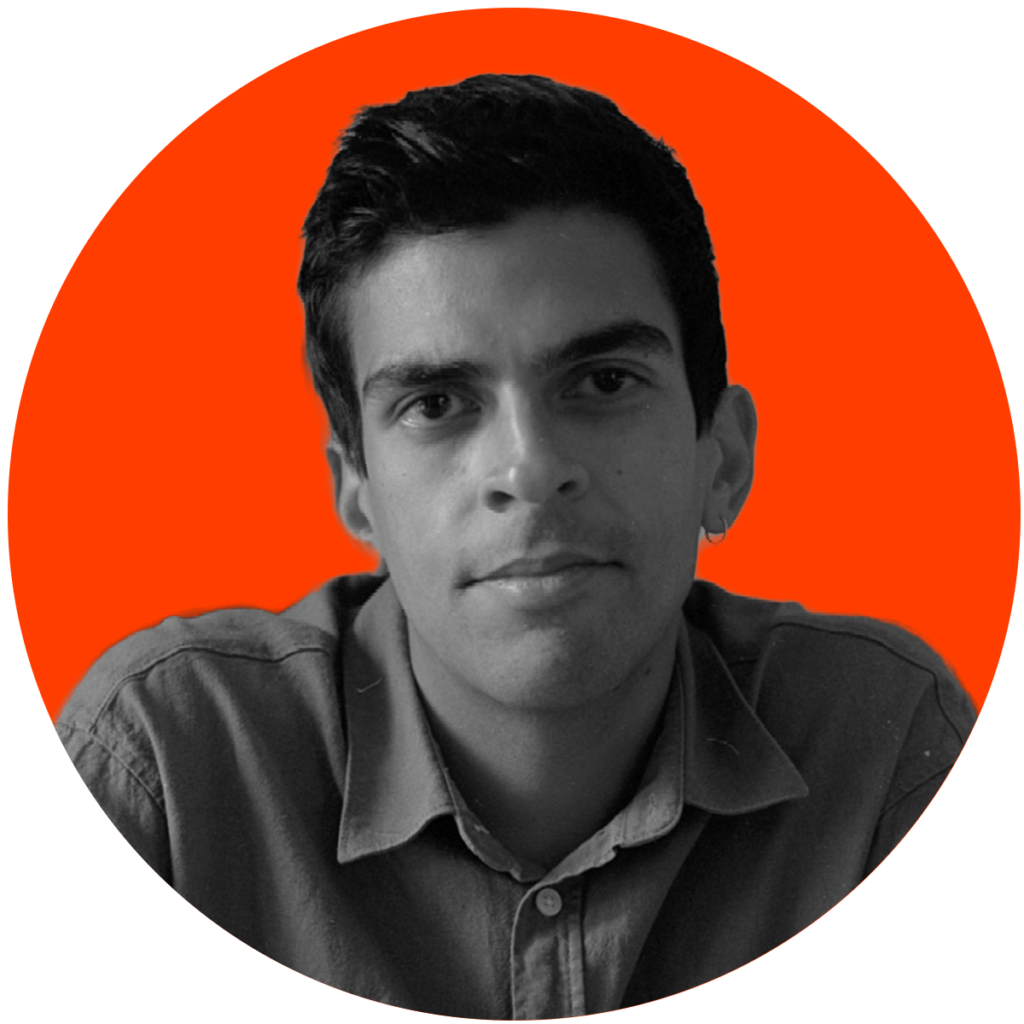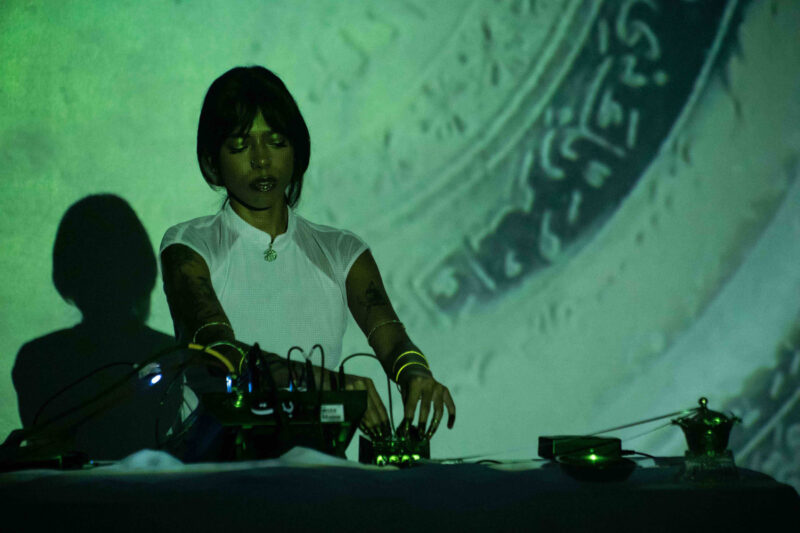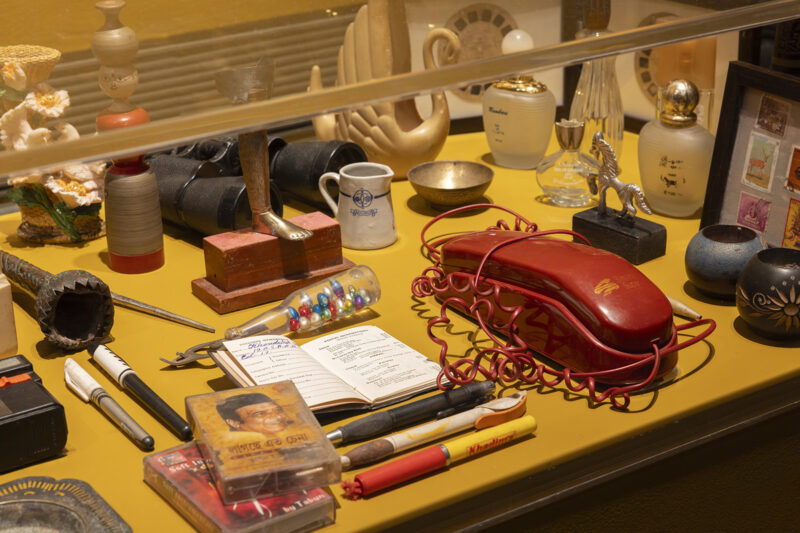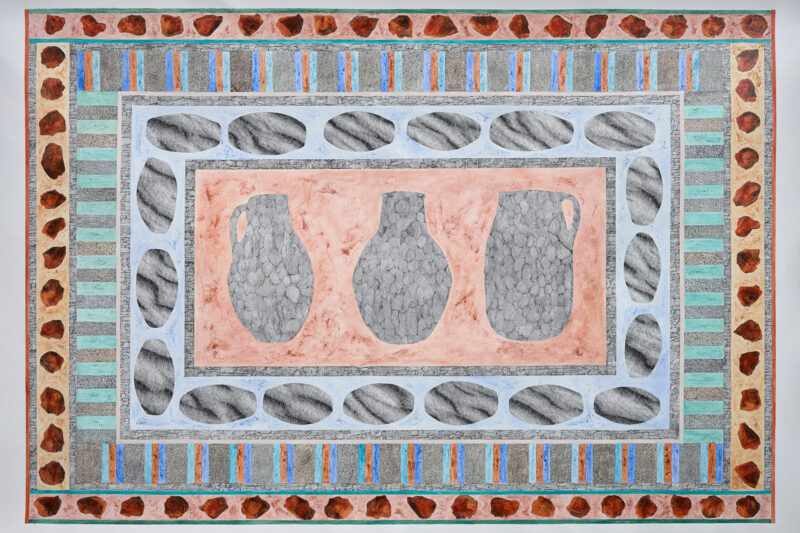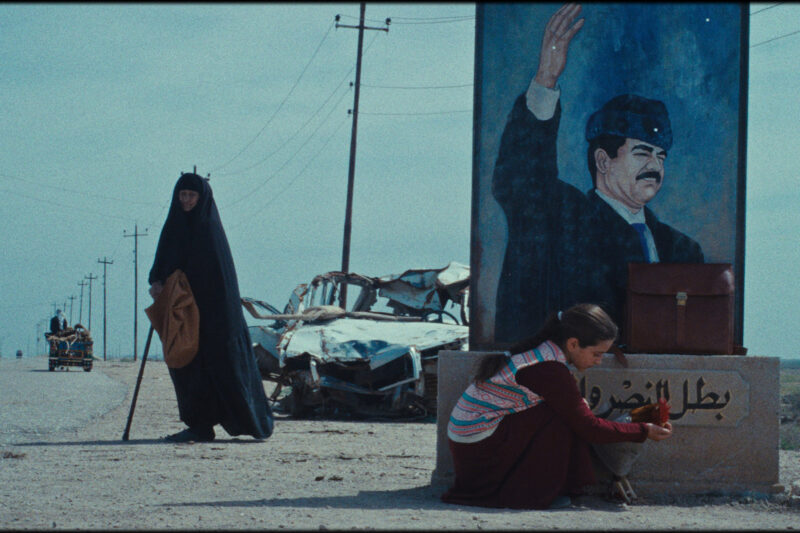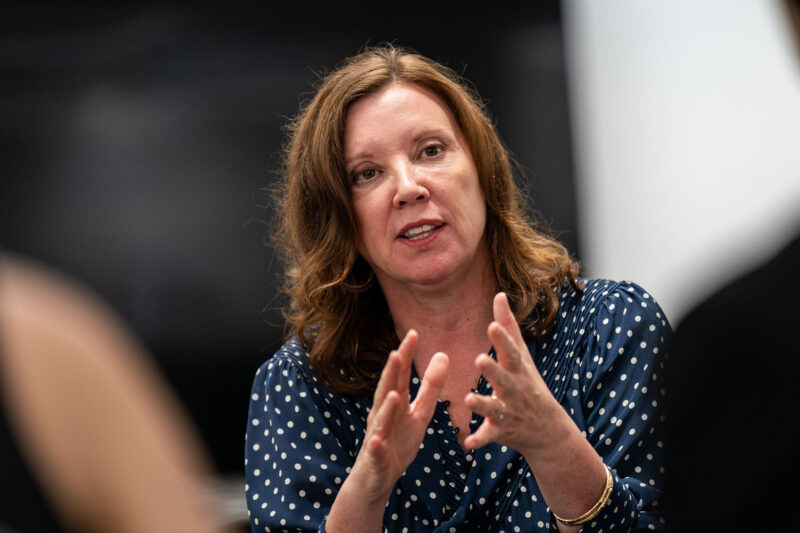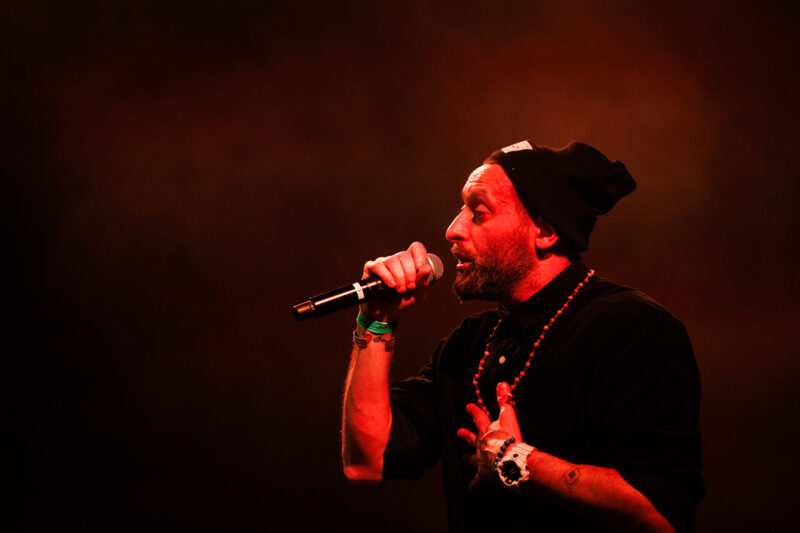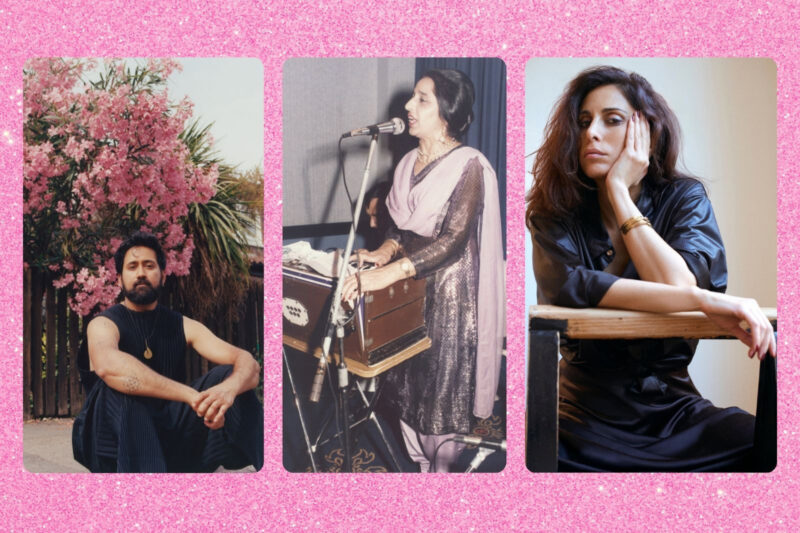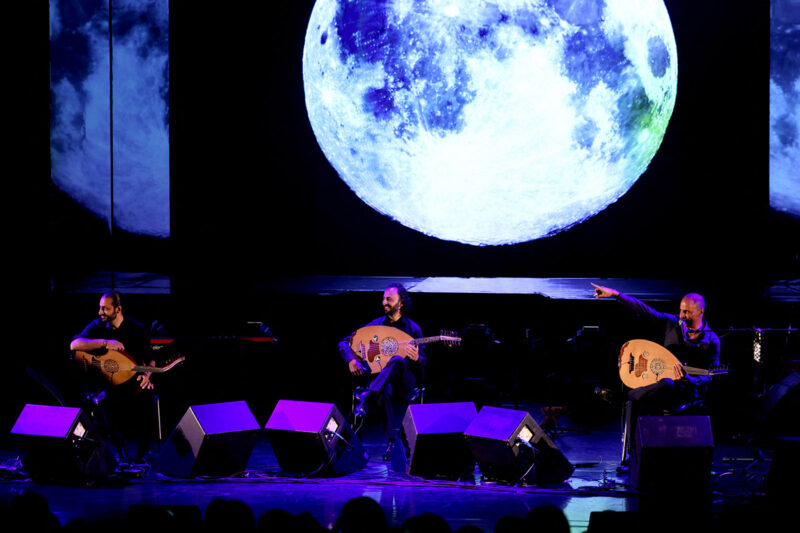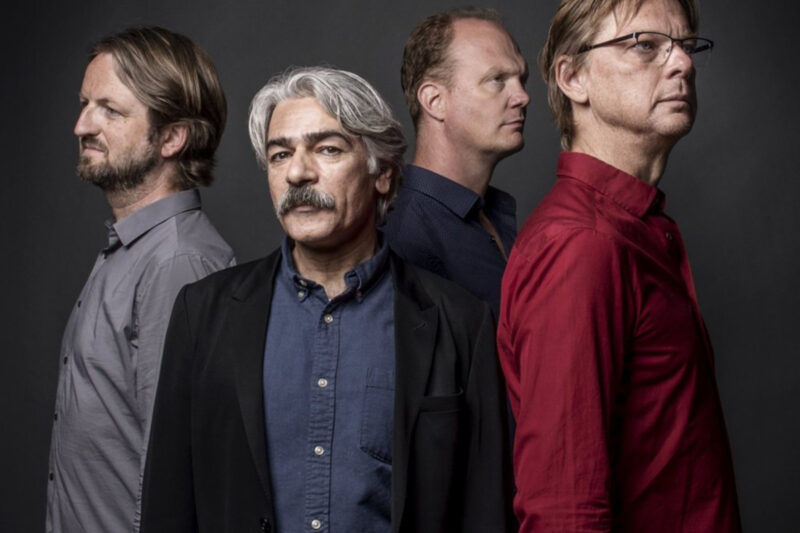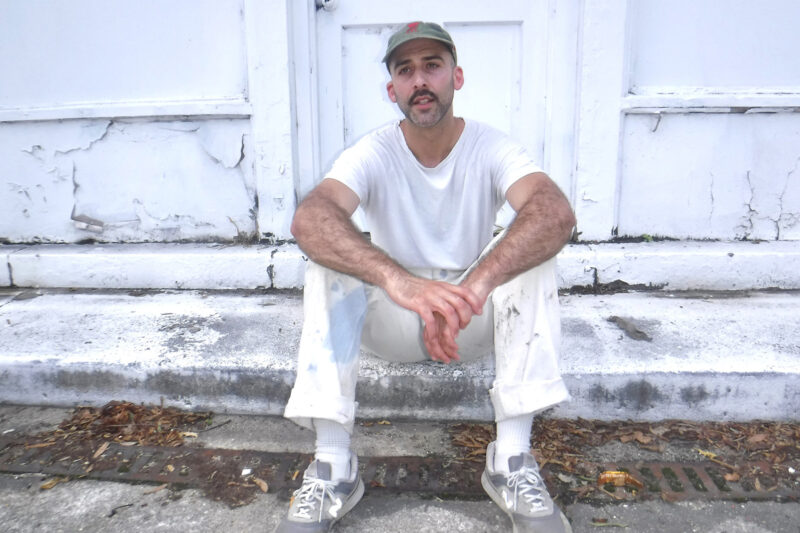Hishek Bishek: ‘People cry because they say this music reminds them of home’
Energy is infectious at a London club night celebrating Middle Eastern and Arabic pop
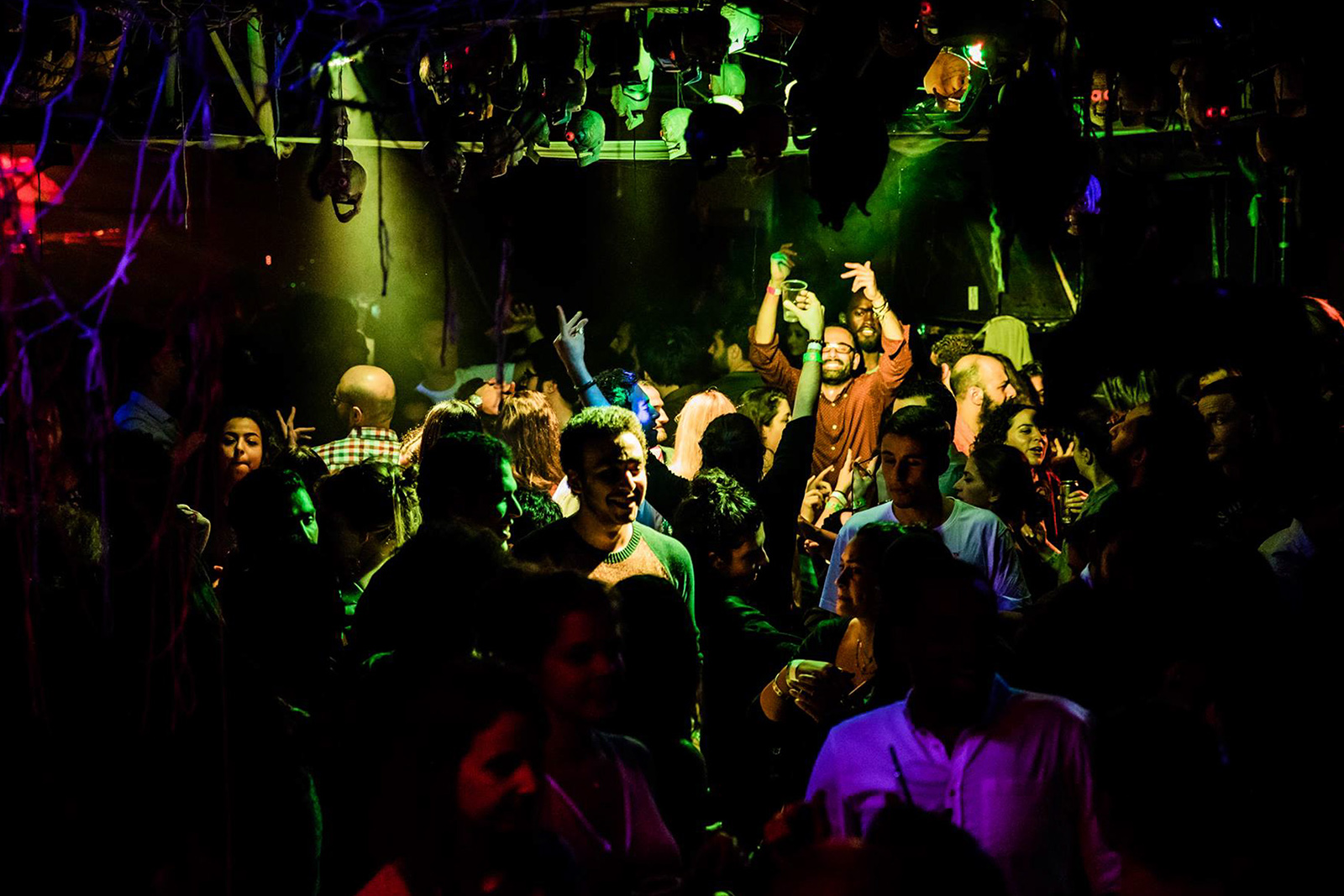
Saturday night in Highbury, north London, and as the pubs are calling last orders, people begin to filter out on to the streets, considering their next move. A group shuffles into a karaoke lounge, while another heads towards a bar pumping out thrashing guitar riffs.
Judging by the queue outside the neon-front of The Garage, one option is larger and more diverse than the others. The snaking line is made up of students and professionals, largely from London’s Arab community, waiting to attend Hishek Bishek: a monthly club night celebrating classic pop music from the Middle East and Arab world, and named after an Egyptian Shaabi expression that’s said at parties to get people dancing.
Inside, resident DJ SuperMike, who has flown in from his home in Haifa, is in charge of three turntables and a laptop, switching seamlessly between dabke rhythms, glittering synthpop and R&B melodies. Every lyric played is in Arabic and choruses are shouted back, word for word, by an enthusiastic crowd.
Standing near the bar with a group of university friends, 25-year-old Ahmed explains the appeal of the night. “This is my fifth time here. Every time it’s on I try to come,” he says. “My background is Egyptian but my Lebanese, Iraqi and Syrian friends all love Hishek Bishek too, since it’s a celebration of our wider community. It feels like one of the only night like this that exists in London.”
Beginning as a sporadic student night at SOAS University of London, Hishek Bishek grew through word of mouth and by 2016 was being operated by the Arab arts organisation MARSM, with bi-monthly nights at north London’s Electrowerkz club that worked with pre-prepared playlists of fan favourites or lists of requests given to non-specialist DJs. SuperMike’s tenure began in 2018 and helped shape the night’s unique sound.
“I started out DJing only hip-hop and R&B until about eight years into my career, when I began incorporating Arabic music,” says DJ SuperMike, real name Hammodi Zahra. “I was playing a night in Ramallah where it morphed into a full Arabic set and everyone on the dancefloor was blown away. Afterwards, the organiser told me I’d be a perfect fit for this Arab music night in London that was getting popular, called Hishek Bishek. I didn’t think anything of it but the next morning I had a message from MARSM in my inbox and the next month I was playing at Electrowerkz.”
Incorporating a hip-hop methodology of scratching records and integrating loops and samples, Zahra’s blending of everything from the Syrian-Kurdish keyboardist Rizan Said to the Palestinian-Jordanian group 47Soul is fast-paced and frenetic, often requiring all three record decks to be playing at once.
“On that first night I think the crowd was surprised to not be hearing each song in full, since I was mixing continuously,” he says with a laugh. “I was also playing slower numbers because I was on from 10pm to 4am and just didn’t have enough bangers. Still, by the last few hours either everyone was getting on board or they were more drunk, because they were all dancing then!”
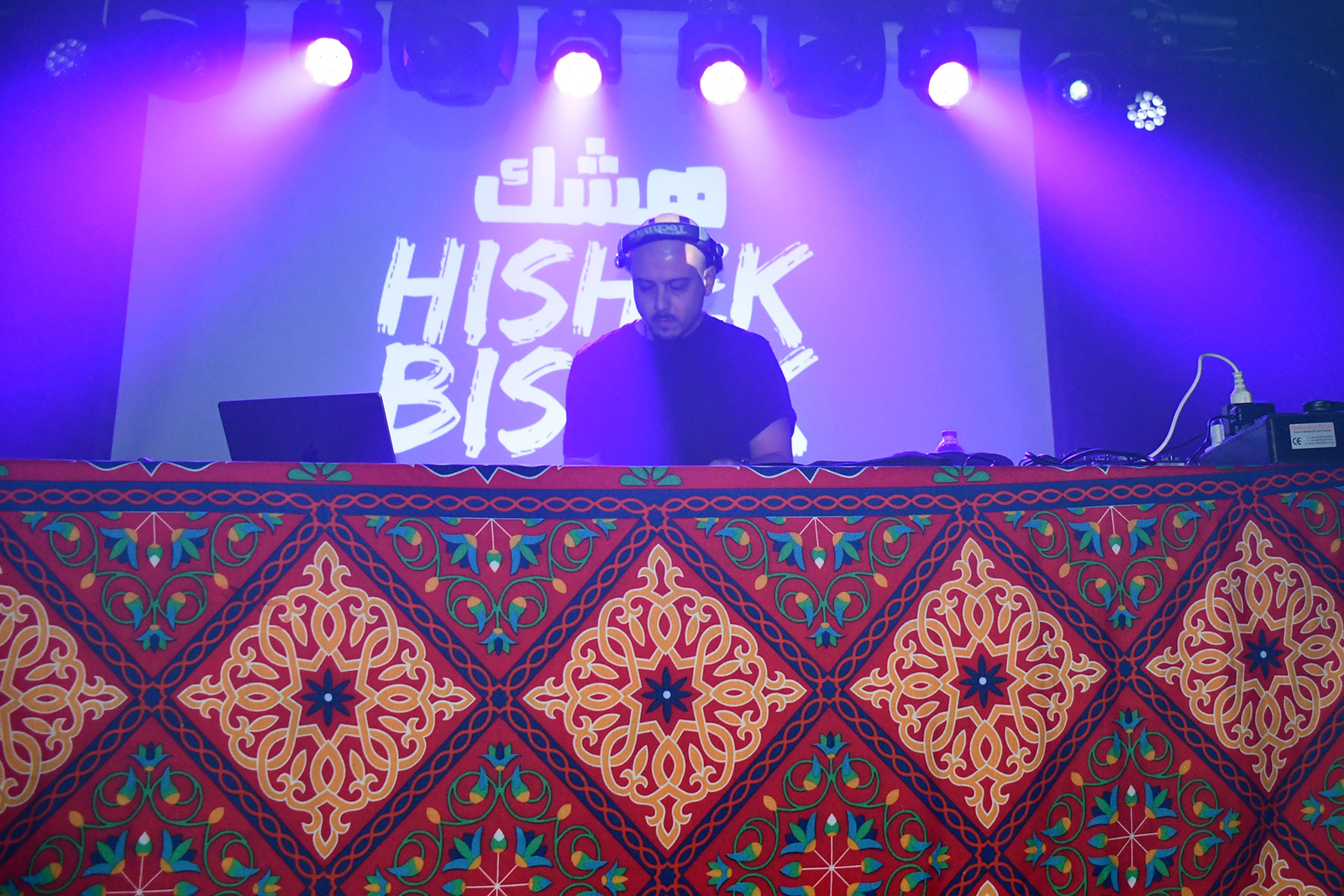
Now, six years into his role as Hishek Bishek’s official DJ, Zahra experiences no struggles getting the crowd locked into his selections. Sara, 32, who moved to the UK from Morocco at the age of 12, has been spending most of the evening dancing with a group of friends from the Arab community and beyond.
“This is only my second time coming, but it’s just such a good night and feels like such a welcoming space for everyone to experience this great music,” she says. “I love it when different communities hear their music, like the Syrians hearing a particular track and going crazy. The energy is infectious for all of us.”
Sara’s partner James is at his first Hishek Bishek night and agrees. “You don’t need to know what’s playing to enjoy it, you just follow the enthusiasm of everyone else,” he says. “I’ve never been to a night where people dance so well or with such passion.”
Indeed, for Zahra it’s paramount that his selections not only reflect the audience’s energy but that they also represent the range of diasporas in attendance. “Playing this night has been a real learning curve of each community’s favourite songs,” he says. “One track that never fails to get the crowd going is [Tunisian folk standard] Sidi Mansour, as well as any songs by [Egyptian singer] Sherine, who should have been an R&B star. It’s all about making sure people feel seen.”
In the context of the ongoing Israel-Gaza conflict, Zahra also believes it is more important than ever to create a space where people can express themselves through celebration, rather than just protest. “We stopped in October 2023 because of the war and I had to be convinced to come back in January because I didn’t know how I felt about DJing during a genocide,” he says. “But as soon as I got here, multiple people approached me and said they were so happy to just be back and to have this space to hope. It allows people to feel normal.”
In fact, since Hishek Bishek has returned its popularity seems to have only increased. The monthly nights at the 600-capacity Garage regularly sell out of advance tickets and there are plans to expand the event to include early evening slots.
“It’s a great place to feel a sense of community in a city that can otherwise be quite isolating,” Ahmed says.
“I’ve had people come up to me and cry because they say this music reminds them of home,” Zahra adds. “It’s a place to gather and put your stresses aside for a few hours, especially when lots of the people here will be experiencing huge traumas.”
Back on the dancefloor, the party is in full swing as Zahra brings in a rollicking series of percussive beats from the next track. Small circles break out in the crowd as mixed groups begin to dance and sing along to Sherine’s Sabri Aleel. Whatever stresses might have entered the club hours ago are now surely gone.
 Newsletter
Newsletter

